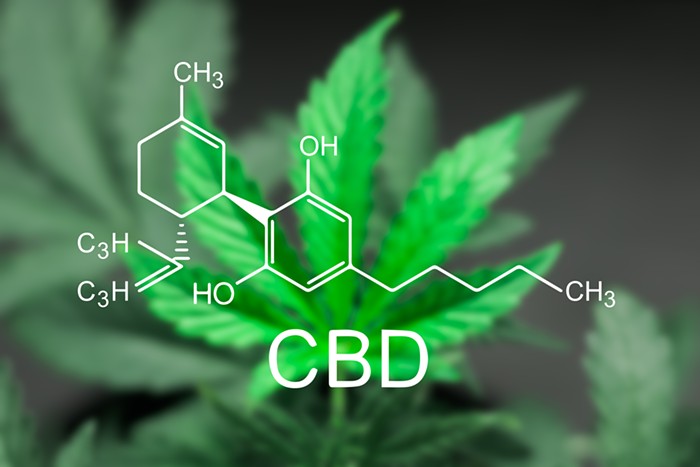Unraveling the cannabis-psychosis paradox
The medical cannabis legalization movement has faced some big challenges in the past few years from prohibitionists claiming that the plant is unsafe. While cannabis consumption has never resulted in death, there is a significant amount of concerns that adolescents who use cannabis are at a greater risk of psychosis. And, unlike most claims against the plan, this one is backed by evidence. In fact,the first longitudinal study reporting an association between cannabis use and psychosis was published nearly 30 years ago.1And many other studies have since reported similar findings.2
However, these studies have not been able to determine whether those who use cannabis during adolescence are at higher risk of developing psychosis later in life, or if those who develop psychosis were using cannabis to alleviate early symptoms. It’s difficult to untangle this relationship because observational studies can only identify cor relational, not causal, relationships.
To muddy things up a bit more, some researchers have actually proposed that targeting the endocannabinoid system may actually help treat psychosis.3 In fact, a group at King’s College London reported that the ever-popular cannabis compound, cannabidiol (CBD), may be beneficial as an adjunctive therapy for patients with schizophrenia.4 But why might that be?
This research group published a study in the prestigious JAMA Psychiatrythat takes a closer look at this cannabis conundrum. In this clinical trial, 33 participants at high risk of psychosis were randomized to receive either a single high dose of CBD (600 mg) or a placebo (control substance).5 Three hours following administration, participants underwent brain imaging via functional MRI while performing a visual memory test. Analyses were then performed to assess the effect of CBD on different parts of the brain while the participants were taking the test.
Participants who took the placebo exhibited greater activity in key parts of the brain–the medial temporal lobe, striatum, and mid brain–compared to those who took CBD. Researchers interpreted these results as a “normalization” effect of CBD itself, as there was no difference in performance on the memory test between the two groups.5
The results of this study indicate that CBD may be beneficial as a therapeutic for those at risk of psychosis – and may partly help explain the cannabis-psychosis paradox. If CBD causes brain “normalization,”then those using high-CBD cultivars may benefit more from the effects of cannabis on early symptoms of psychosis, while high-THC cultivars could result in the opposite effect.6
To further expand upon the findings of this study, researchers are conducting a larger trial to test the effects of CBD in young people at high risk of psychosis.
“If successful, this trial will provide definitive proof of cannabidiol’s role as an antipsychotic treatment and pave the way for use in the clinic,” said the study’s lead author in a press release.
With the recent FDA approval of CBD compound Epidiolex for children with severe forms of epilepsy, additional data is needed to better understand the link between different types of cannabis compounds and effects over long-term use.
References
- Andréasson, S., Allebeck, P., Engström, A., Rydberg, U.,“Cannabis and Schizophrenia. A Longitudinal Study of Swedish Conscripts”, Lancet, 1987, Volume 2.
- Starzer, M.S.K., Nordentoft, M., Hjorthøj, C., “Rates and Predictors of Conversion to Schizophrenia or Bipolar Disorder Following Substance-Induced Psychosis”, Am J Psychiatry, 2017, Volume 175.
- Mandolini, G.M., Lazzaretti,M., Pigoni, A., OldaniL.,“Pharmacological Properties of Cannabidiol in the Treatment of Psychiatric Disorders: A Critical Overview”, Epidemiol Psychiatr Sci, 2018, Volume 27.
- McGuire, P., Robson, P., Cubala, W.J., et al, “Cannabidiol (CBD) as an Adjunctive Therapy in Schizophrenia: A Multicenter Randomized Controlled Trial”,Am J Psychiatry, 2017, Volume 175.
- Bhattacharyya, S., et al, “Effect of Cannabidiol on Medial Temporal, Midbrain, and
Striatal Dysfunction in People at Clinical High Risk of Psychosis: A Randomized Clinical Trial”, JAMA Psychiatry, 2018, Epub.
- Di Forti, M., “High-potency Cannabis and The Risk of Psychosis”, Br J Psychiatry, 2009, Volume 195.










